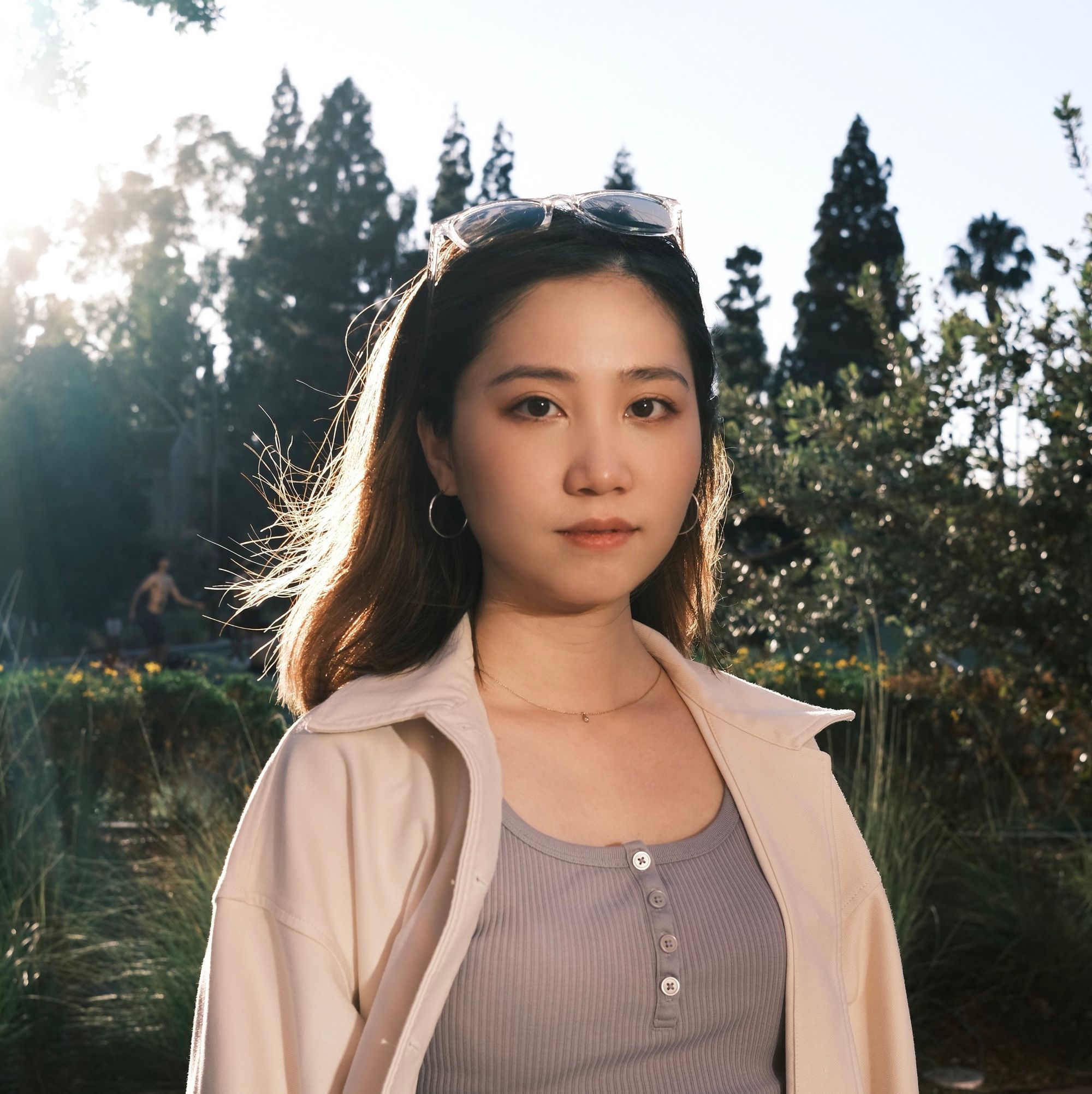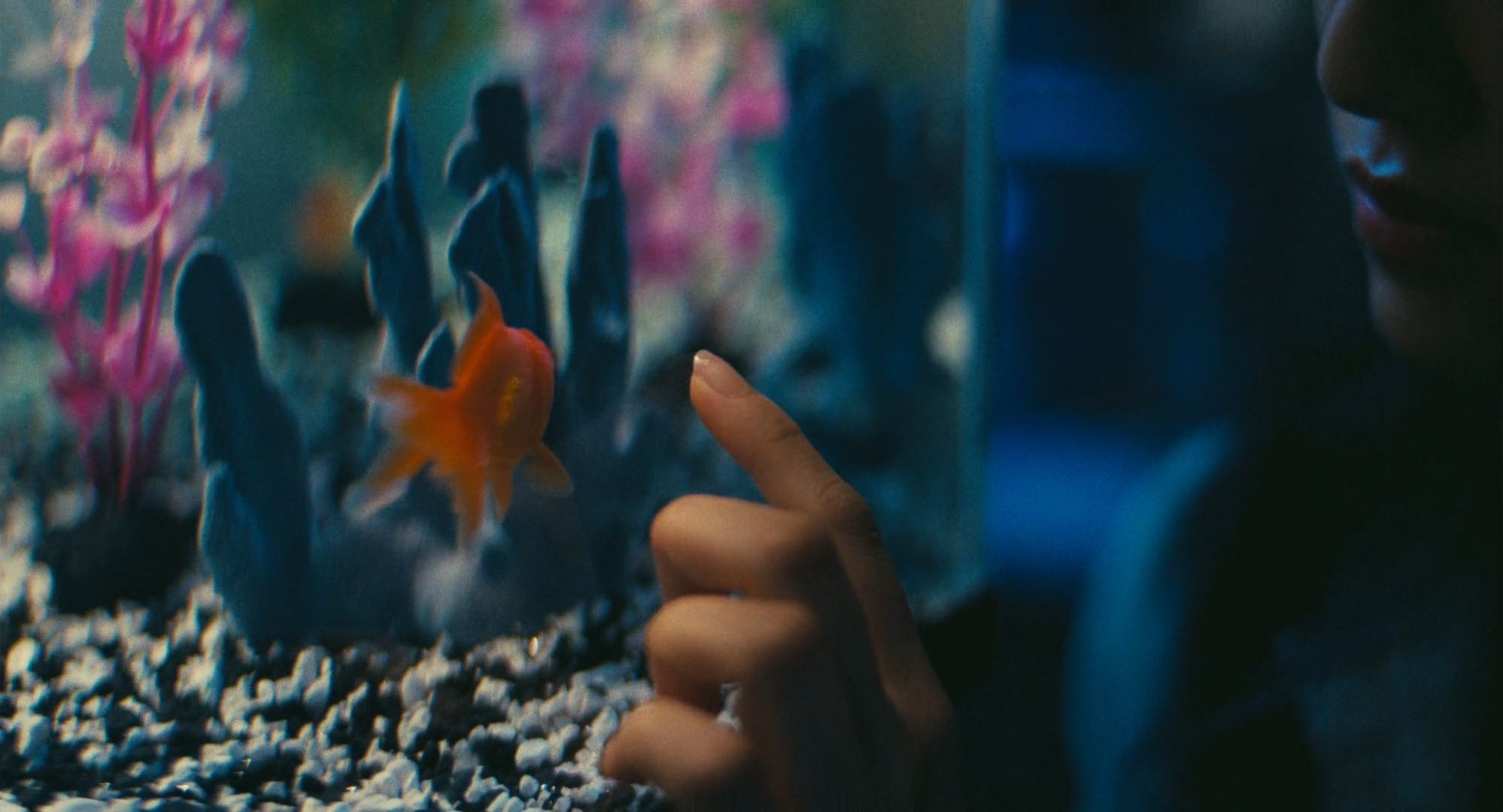
Q&A: Filmmaker Wendi Tang
Wendi Tang is a Film Pipeline Short Script winner with the stunning story Fishtank. The film was produced in 2023.
During Film Pipeline judging, Fishtank landed exactly in our zone for what we usually recognize as a standout short script: compelling, divergent in concept, and messaging that provokes discussion (which it most definitely did amongst myself and our execs).
Before you started writing the story, what was the seedling for this idea? What were you going for, thematically speaking?
It was an honor to receive the Film Pipeline prize—it was a screenwriting competition that I had been following for years!
The seeds of this idea came from a variety of sources, but the direct inspiration was one of my lucid dreams. I had a dream about wanting to puke in the middle of nowhere, but nothing came out at first. Then, as I was suffocating in my dream, I saw a goldfish land in my palm. And then I woke up. This imagery stayed with me for a long time because I always believe dreams are driven by one's subconscious and, in this case, it's trying to tell me something. After a week, I finished Fishtank and submitted the first draft to all of the competitions that were open at the time.
As I went through the process of rewriting the script, every aspect of the story's themes and meanings became clearer. In the first draft, I wanted to write about my emotions without giving too much thought to the many limitations placed on me by the practical aspects of the situation. I also wanted to test the boundaries of what was possible in terms of writing a short script.
I know a lot of filmmakers put different degrees of weight into certain elements, and it’s all very subjective. Some value aesthetic (and the short looks gorgeous by the way …). Some value characters. Some the premise.
As a writer-director, what for you are the key components of a successful short film?
Staying true to how I was feeling at the time I was making a short film is, to me, the most important aspect of the process, even though it may sound like a cliché. The aesthetics, the characters, and the premise are all necessary components that should be given the greatest amount of focus and consideration.
Nevertheless, even as I answer this question, I still find that I am on the path toward perfecting my own process. When the situation calls for it, a writer-director needs to be able to switch gears quickly. I always joked that my writer self is responsible for most of the problems that need to be solved in my director's brain. If I had to choose one thing to prioritize, I believe it would be figuring out what the message of the story is. It can be on a societal level or simply on an individual one. Nothing is wrong, though. The desire to make a particular movie must originate from within, as this is the only way that it will be able to leave an impression on the audience on an emotional level.
What do you want the audience to hang on to most by the end of Fishtank? Because I have questions ...
To put it bluntly, I don't want the audience to feel too at ease after watching it and just walk away. In my experience, the films that influenced me the most were the ones that made me think about them in the middle of the night, whether it was about a character, a scene, or a piece of dialogue. I hope Fishtank sparks many conversations. I want the audience to be moved emotionally, to think about the film and, of course, to talk about it and ask questions!
When you’re putting together a trickier shoot like this—no spoilers, but you needed a lot of fish—it can probably feel daunting at first, no? Many beginners who’ve never made a short might wonder what their first step is. And that can vary.
What was your approach, as far as gathering the right crew, the right location, and so forth?
I graduated from NYU Tisch's film program a few years ago, and fortunately, I was able to make a lot of mistakes and practice my skills there. That is not to say that a film school education is required, but I believe that exposing yourself to the process and learning by failing is an important first step. I made a few shorts before Fishtank, and without a doubt, Fishtank is the most difficult project I've ever worked on. Before you begin pre-production, you must first polish the script. You want to land the script in a place where it fits your vision, not only creatively, but practically. There would be compromises, but letting go of some of the elements at the right time would allow you to see the project through to completion.
There’s a saying in Chinese, “天时地利人和,” which means "any achievement requires the right time, the right place, and the right people." This is true of any creative process. Finding collaborators who not only share your vision but also have your back from start to finish is critical. This shoot had many moving parts, and I'm glad I was able to find my team along the way, who did an excellent job of executing and supporting my vision.
It takes a lot of willpower to get through the process. Even though I began pre-production nearly six months before the shoot, unexpected events occurred on a weekly basis. My team and I often joked that if we could pull off the "hardest shoot," there was nothing we couldn't do. After experiencing major crew changes, equipment malfunction, and numerous other difficulties only a week before the shoot, the fish were actually one of the easier parts. The process was, of course, intimidating at first. So the only advice I have is to be prepared to solve problems every day while remaining positive.
After all, finishing something is already a huge achievement nowadays.

The plot itself in Fishtank is simple, on the surface, but there’s a fearlessness to the storytelling that stuck with me. Almost like, “This is the film I’m making, I don’t care if you get it or not,” and I quite liked that.
Is this a common thread in your writing, this tinge of surrealism? What types of films do you see yourself producing in the future?
I'm happy to hear your feedback! Instead of saying something like, "I don't care if you get it or not," I'd say that I believe the film will find the audience it's meant for. "I have faith that you'll figure it out, in your own unique way."
Before I started working in the film industry, I was also a member of the audience. So I know the audience is smarter than you believe. Once the film's post-production is complete, I will no longer have any control over it. It is very important to me that there be room for a variety of interpretations and responses.
Regarding the surrealism, I would say that you are correct. When I tell a story, I always like to set it in an unusual situation so that I can explore the possibilities of what I can do with it. With Fishtank in the festival circuit, I hope to turn it into a feature in the near future. There were so many other layers of stories I had in mind for this concept that I had to cut due to the time constraints of a short. I consider the short one of many outcomes of the story, and I look forward to expanding it to its fullest potential.
Aside from this project, one of my goals is to create narrative works that are weird but wonderful.
Before you knew you wanted to be a writer-director, what path did you see yourself on, career-wise? Or was that urge there forever? Was there a singular moment where you stopped and said, “Oh … maybe I should do this?”
Interestingly, now that I think about it, I believe I always wanted to be a writer-director.
However, while studying film, I worked in development, tried editing, and did a few years of producing. I even did a publicity internship at a major studio and finished a business degree [smile]. It took me many years to realize that I simply lacked the courage to pursue an unconventional path at that time. Growing up in an Asian household, I was always told to be practical and realistic about my own abilities. My desire to tell stories, on the other hand, never faded, but only grew stronger.
And my prerequisite, completely tangential question that you have to answer immediately without thinking about: favorite scene from a film—go.
I have so many favorites, but the carnivorous island scene in Life of Pi is at the top of my list. One of the most beautifully written and constructed scenes, bringing us to the brink of discovering the hidden truth. The scene was euphemistic and delicate, yet it brutally revealed the truth about humanity. Not going to do any scene analysis here, but I just love it!

